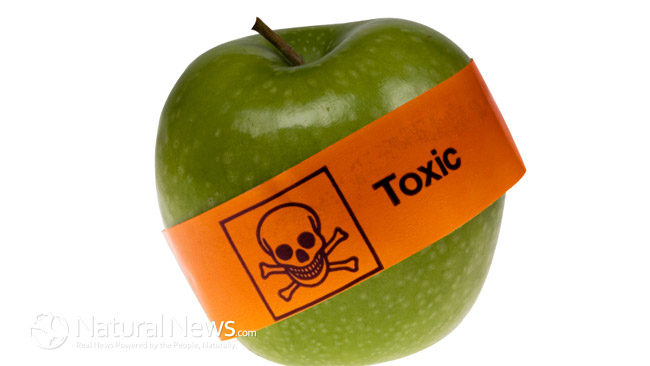There is a good reason why people who are concerned about their long-term health are increasingly buy organic products. The majority of fruits and vegetables that are sold in grocery stores today have been conventionally raised and those exposed to heavy applications of pesticides and herbicides whose residues can get into the food chain and cause problems for people when those fruits and vegetables are eaten. These problems include problems with fertility, birth defects, ADHD in children who are exposed to these chemicals and even certain forms of cancer. Below are seven of the foods that usually contain the highest amounts of pesticides and that you should definitely buy organic.
Apples
Conventionally raised apples are highly contaminated, containing the residues of up to 42 pesticides on average. Of the chemicals in question, 7 are known or suspected carcinogens, another 10 are neurotoxins, 19 are endocrine disruptors and 6 can effect reproduction or development. In addition, 17 have been shown to be toxic to honeybees.
Cherries
Cherries, also, are raised with heavy pesticide application and like apples have around 42 pesticides residues. The numbers here are no better than they were with apples, with cherries bringing in around 7 known or suspected carcinogens, 22 hormone disruptors, 7 neurotoxins and 8 toxins effective reproduction of development. In this case, 18 of the toxins are known to effect honeybees.
Green Beans
Green beans raised in a conventional manner can have around 44 different pesticides residues by the time they make it onto the dinner plate. Of these, 8 are known carcinogens, 22 are endocrine disruptors, 11 are neurotoxins, 8 effect reproduction and development and 18 are known to be toxic to honeybees.
Collard Greens
These greens may be healthy in and of themselves, but conventionally raised collards can be laced with up to 46 pesticide residues – 9 carcinogens, 25 endocrine disruptors, 10 neurotoxins, 8 which effect reproduction or development and 25 chemicals which can eliminate honeybees.
Spinach
Spinach is a definitely a superfood due to all its nutrients, but if not organically raised, it can contain up to 48 pesticide residues, include 8 known carcinogens, 25 chemicals which will disrupt the endocrine system, 8 neurotoxins, 6 developmental or reproductive toxins and 23 chemicals that are toxic to honeybees.
Sweet Bell Peppers
There’s nothing sweet about the approximately 49 pesticide residues these peppers can bring to the table, including 11 carcinogens, 26 known or suspected endocrine disruptors, 13 neurotoxins, 10 developmental or reproductive toxins and 19 toxins toxic to honey bees.
Lettuce
This innocent-looking salad component can contain a whopping 51 pesticide residues, of which 12 are known or suspected carcinogens, 29 are endocrine disruptors, 9 are neurotoxins, 10 effect reproduction or development and 21 are toxic to honeybees.
Even if you cannot afford to buy everything organic, you should try if possible to at least buy organically raised products like the ones above if you want to limit your exposure to truly toxic foods that affect many aspects of human health.
More Entries by Rosalina





